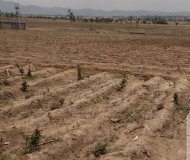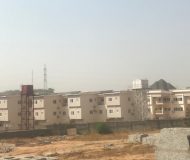
Will Real Estate Prices Crash in 2025?
The question on many property buyers, investors, and even homeowners’ minds is whether real estate prices will crash in the coming years, particularly in 2025. In Nigeria, where the real estate market has seen steady growth despite economic challenges, it’s natural to wonder if a sudden downturn is on the horizon. This article will explore the factors influencing property prices and assess the likelihood of a crash in 2025.
1. Global and Local Economic Trends
The state of the global economy plays a key role in shaping Nigeria’s real estate market. A global recession or economic downturn can reduce investor confidence, leading to lower demand for properties and a possible price drop. However, Nigeria’s real estate market has traditionally been more resilient to global economic pressures compared to more developed markets.
Locally, inflation, high-interest rates, and unemployment are already making it harder for average Nigerians to buy property. If these economic conditions persist or worsen, demand for properties may decrease, putting downward pressure on prices. Conversely, if Nigeria’s economy improves, demand could stabilize or even increase, preventing a crash.
2. Urbanization and Population Growth
Nigeria’s rapid population growth and increasing urbanization are major drivers of real estate demand. As cities like Lagos, Abuja, and Port Harcourt continue to expand, the demand for housing and commercial real estate is expected to remain high. This consistent demand makes a sharp price crash less likely, as the need for housing will continue to support the market.
According to estimates, Nigeria’s population will exceed 250 million by 2050, with a significant portion migrating to urban areas. This population boom could sustain the real estate market and prevent a dramatic drop in prices, even if other economic factors weaken.
3. Government Policies and Incentives
Government policies will play a significant role in determining whether real estate prices remain stable or experience a downturn. If the Nigerian government introduces policies to stimulate housing development, such as affordable housing projects or incentives for first-time homebuyers, demand could be boosted, preventing a price crash.
On the other hand, if there are unfavorable tax policies, land acquisition complications, or restrictive regulations, it could deter investment and contribute to declining prices. Monitoring government initiatives in housing and property regulation will be key to understanding future trends in the market.
4. Supply and Demand Imbalance
A price crash typically occurs when there is an oversupply of properties combined with weak demand. In Nigeria, however, there is a well-documented housing deficit, with millions of Nigerians in need of affordable housing. As long as this housing shortage exists, a major price crash is unlikely, as demand will continue to outstrip supply in many areas, especially in urban centers.
However, if developers overbuild luxury properties without catering to the mid-market or affordable housing needs, we could see a slowdown in high-end real estate prices, though this may not translate to an overall market crash.
5. Foreign Investment and Currency Fluctuations
Foreign investment in Nigerian real estate has traditionally been a stabilizing factor. However, currency fluctuations and a weak naira can deter foreign investors, leading to reduced demand for high-end properties, particularly in prime locations like Lagos and Abuja.
If the naira continues to depreciate or Nigeria faces capital flight, foreign investors may pull back, creating a ripple effect on property prices. However, this would likely affect only the luxury segment, not the entire market, which is still largely driven by local demand.
Conclusion: Will Prices Crash?
While it is impossible to predict the future with absolute certainty, a full-scale crash in Nigeria’s real estate market by 2025 seems unlikely. Factors like population growth, urbanization, and housing demand will likely keep prices stable, though there may be fluctuations in specific market segments, particularly at the higher end.
However, economic instability, government policy shifts, or a significant decline in foreign investment could lead to localized price drops. As always, buyers and investors should stay informed and cautious, monitoring the economy and market trends closely.






